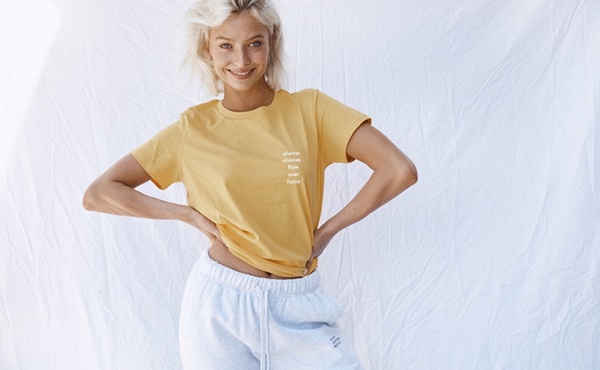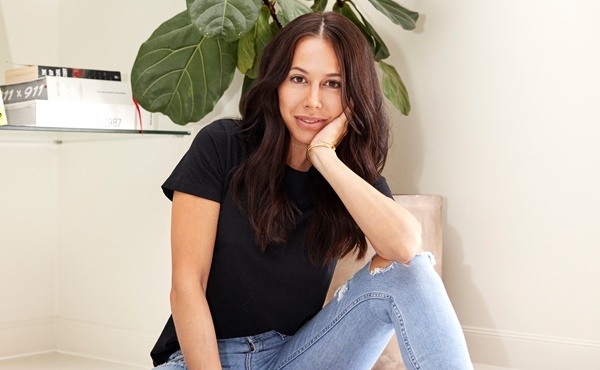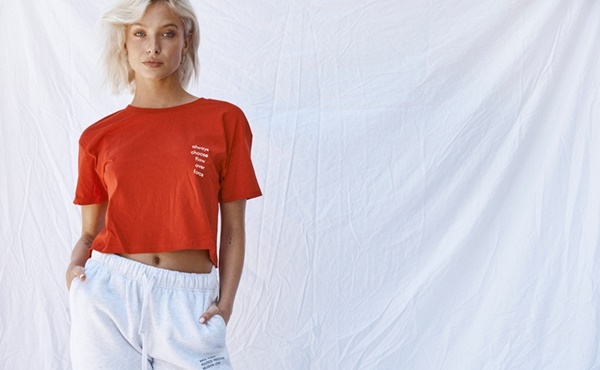The throwaway culture in Australia is creating a serious environmental problem. On average, we’re buying 27kg of textiles each year (including leather and homewares) and then discarding 23kg into landfill, mostly synthetic fibres, making the amount of textiles Australians consume annually double the global average of 13kg a person. With fast fashion and ‘Instagram’ brands few and far, now more than ever is it imperative designers make a change for good, and get off the fashion treadmill.
While 2020 and Covid-19 for most businesses have meant financial backlash and struggle through a crippling economy with consumer spending shifting, it has been a matter of a sink or swim with brands few and far shutting their doors.
However, for one young Aussie designer it has been an opportunity to reset, readjusting the manufacturing processes of her $7 million a year bikini brand, saying goodbye to fast fashion with a new standard.
Rebecca Klodinsky, 32, designer and director or IIXIIST took this time of uncertainty to completely audit the production line of her global brand, relaunching with a collection that is 100 per cent sustainable, ethically sourced and produced in child-free environments, just in time for summer.

“Over the past two years I’ve been quietly examining the way I produce,” she explains.
“I’ve switched swim manufacturers four times now due to the treatment and lack of care to the workers heading up their production lines. Furthermore, I’ve been to China three times and also frequent Bali―historically close to eight times a year. It was a painful, drawn-out task but the end result is worth it. We produce our garments in the cleanest, kindest and most sustainable conditions.”
Klodinsky has built her multimillion-dollar swimwear brand from the ground up―twice―having to first change from Frankie to Frankii Swim, and then from Frankii Swim to IIXIIST, a dual-relaunch that came down to an overly saturated market filled with businesses that all sound the same.
“We as consumers are spoiled for choice when it comes to consumer lifestyle, fashion, beauty, food and more. There is always something cheaper and perhaps even more ‘sparkly’ (even though it may take six weeks to arrive or only get one-wear from it).

“Start-ups that don’t understand their target market not speak to them authentically to transition one-time customers to brand advocates will always fall short to copycat brands. Marketing and social media is a commitment, not a strategy.”
Indeed, everything Klodinsky does is based on logic, she says. “I know what my customers love and what keeps them coming back for more. In designing a new collection, I always incorporate the ‘heroes’, which are the styles stylists and celebrities pull and in turn, always sell out.
“I also ask my audience. We’re very lucky to have an extremely engaged customer-base―I create polls on social media and get them to choose what colours and styles are their favourites. I then incorporate this feedback to my internal team and we go from there. As we produce our swimwear based on real demand versus mass production, it’s imperative we listen to what our followers want.”
The relaunch has also welcomed new product categories to her range in response to the consumer demand for loungewear.

“IIXIIST Loungewear is produced in responsible quantities using sustainable materials. We’re also manufacturing locally right here in Australia in child-free labour conditions… all of the important THINGS.
“The loungewear range is not just another Instagram brand; it’s built on quality and is responsible with an ethical standpoint.”
Constructed using only 100 per cent recycled lycra made from repurposed fabrications and ocean-waste, the yarn is derived from pre- and post-industrial waste such as discarded fishing nets, carpet fluff (the top part of Nylon carpets which have got to the end of their useful life) and tulle. Instead of being disposed of in landfill, they’re recovered and regenerated.
A bittersweet transition, the label has amassed an impressive list of celebrity devotees such as Kim Kardashian, Kylie Jenner, Bella Hadid, Rihanna and Hailey Bieber to name a few. Then came Coronavirus and the immobilising pressures that followed; it’s the recipe for an Aussie success story as the label thrives and survives despite the hurdles faced in its relatively young lifespan.

“The pandemic came at a time when we had just changed our name, however, evidently this timing was perfect. All brands were being forced to take a seat and pause―some not standing the test of time, which has been heartbreaking to see. At IIXIIST we were able to collect ourselves and manage the rebrand slowly and patiently.
“We immediately adjusted our marketing and brand plans, changing the way we spoke to our customers and not being in their face trying to sell. Everyone around the globe has been affected by Covid-19―now more than ever is the time to band together and support each other.
“At IIXIIST our brand tone adopted a human element by default, and for the first time in a long time, we were speaking directly to our audience and not just selling to them,” she adds.
IIXIIST was launched in 2013 when Klodinsky was in her early-20s, a full-time university student and used her savings at the time. The idea was coined from seeing a gap in the swim market, which at the time was flooded with a mix of overpriced swim labels and low-quality brands that weren’t designed to actually last one summer in the water.
 “It was never my goal to take over the world or grow the business to where it was now, however, as soon as I launched I realised there was an opportunity to really make something, fast-track seven years and IIXIIST is a global household brand that turns over $7 million a year with an audience from every corner of the world.
“It was never my goal to take over the world or grow the business to where it was now, however, as soon as I launched I realised there was an opportunity to really make something, fast-track seven years and IIXIIST is a global household brand that turns over $7 million a year with an audience from every corner of the world.
“In the first few years of operating my approach was learn-as-you-go; IIXIIST was born before social media was a thing and e-commerce was just entering the market. There wasn’t a rulebook to follow or brands to base the business model off. It has been a wild ride and I wouldn’t have it any other way.”







